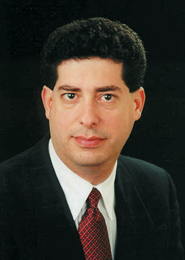In order for the markets to work properly, stock exchanges and broker-dealers are going to have to manage the natural tension that exists between the two. That’s according to experts who spoke earlier this week at a stock exchange conference held by Baruch College.
Gary Katz, president and chief executive officer of the International Securities Exchange, said there is a healthy balance as exchanges and broker-dealers work against each other, with both having different mindsets and different goals.

“The fight between broker-dealers and exchanges is real, but both win,” Katz said. “It’s a never-ending process.”
That sentiment was echoed by Gary Stone, director of development and trading research and strategy at Bloomberg Tradebook. He said markets today are better for both investors and broker-dealers due to the exchanges going public.
But electronic trading veteran Joe Rosen, president of RKA, warned that exchanges are in a hyper-competitive space. Their tension with broker-dealers, which are always looking for the lowest trading costs, forces exchanges to constantly look for new products, he said.
Exchange groups need to get more into the technology business, which they have, and to think of themselves as technology companies, Rosen said. He added that at some point the exchanges will have to start charging for bandwidth, assessing fees for excessive cancelations.
Tim Mahoney, CEO of BIDS Trading, a crossing network owned by a consortium of big brokers, said the future of exchanges lies not in competing with broker-dealers but in providing scale and technology to the brokers. While it is theoretically possible that exchanges could move into the broker-dealer space, he said that was not likely.
“Is that what you aspire to? Be a broker-dealer?” Mahoney asked. “You’ll have people protesting you.”



